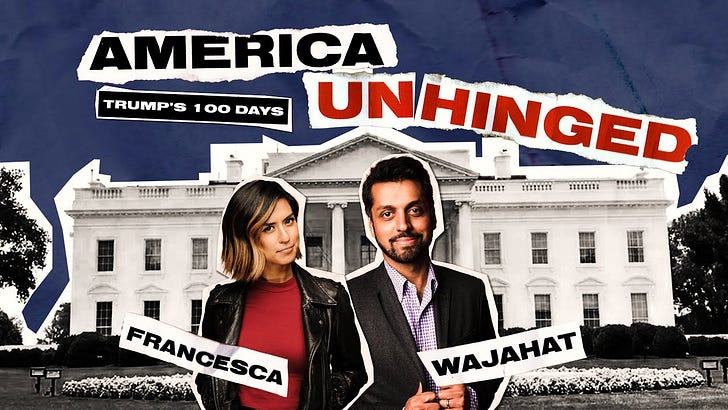
Britain has become very good at pretending things are fine.
You hear it in the speeches, the podcasts, the TED-style startup pitches dressed up as optimism. We’re told that opportunity is everywhere. That with the right mindset and a bit of tech-savviness, anyone can go from a council flat to a six-figure brand. That hustle is universal. That the only barrier is belief.
It’s a nice idea. But it has very little to do with how people actually live.
This fantasy version of the UK depends on keeping a specific group out of the picture. The people who clean hospitals, care for relatives, drive buses, fix boilers, serve food, work warehouses, stock shelves, and sit in call centres getting an earful because someone’s bank didn’t cancel their Disney+ on time. These people aren’t failed entrepreneurs. They’re not bad at branding. They’re not short on ambition. They’re just living in a country where stability has been reclassified as a luxury.
Gary Stevenson put it clearly:
“We used to allow 50 percent of people to be secure. Then it’s 40. Then it’s 30. Then it’s 20. We are shrinking the seats on the lifeboat.”
That’s not commentary. That’s what it feels like when the economy stops pretending to include you.
We’ve spent the last two decades replacing public security with private responsibility. If you’re struggling, it’s your fault. If you’re poor, it’s because you didn’t optimise. If you’re exhausted, maybe you need a better morning routine. Nothing about low pay, collapsing services, or rising rents. Just mindset. Just hustle. Just personal failure.
This isn’t just ideology. It’s a deflection strategy wrapped in marketing language.
When Stevenson says,
“My friends can’t feed their kids. If it was as simple as going out and being entrepreneurial, I can bet you they would do it,”
he’s not exaggerating. He’s describing the fundamental dishonesty at the heart of modern political and economic debate: that everyone can make it if they just try hard enough. And that if they don’t, they’ve chosen failure.
But most people aren’t chasing empires. They’re trying to stay afloat. They want a life, not a LinkedIn profile. A home that doesn’t make them ill. A job that pays the rent. A school that’s still standing in five years. A bus route that hasn’t been cut. That’s what people want. That’s what’s now considered too much to ask.
Meanwhile, we talk about “wealth creators” like they’re saviours, but never about who cleans up after them. A billionaire moves to Monaco and dodges tax, and it’s treated like unfortunate pragmatism. Not theft. Not abandonment. Just the cost of doing business.
“If you allow British people who own £300 million of British assets to technically live in Monaco and not pay tax,” Stevenson says,
“then you will get crime, and you will have dirty streets, and you will have a bad healthcare system, and you will have bad education.”
These aren’t side effects. They’re the deal. Public wealth extracted. Private wealth protected. And those left behind? Told to work harder. Told to innovate. Told to smile through it.
The lights are going out in libraries, and you’re expected to launch a podcast.
Stevenson doesn’t dress this up:
“I’m sick of multi-millionaires telling kids who can’t afford to turn the heating on, ‘you just need to be more entrepreneurial.’ It’s sick, Dan, it’s sick. This gives people mental illness. Tell them the truth. Your older generation took the opportunities, and now it’s almost impossible to get out of poverty. And don’t just stand up and wave your millions of pounds in front of them and say, ‘If you were entrepreneurial like me, you could do it.’ Because it’s sick. Because they can’t. They can’t feed their kids, Dan. They can’t turn the heating on. Don’t tell them to be more entrepreneurial — fix the system.”
That quote isn’t about bitterness. It’s about reality. It’s about the violence of pretending personal drive can override economic design. It’s about what it does to a person — mentally, emotionally, socially — to be told their struggle is a branding issue. That poverty is a lack of mindset. That failure to thrive is a failure to try.
This narrative doesn’t just mislead. It damages. Especially men. Especially working-class lads who were raised to believe that worth is something you prove by providing. By enduring. By surviving without complaint. When that framework collapses, when the jobs go, the housing costs triple, the bills mount up, it doesn’t just take your income. It takes your identity.
What’s left when the traditional routes to dignity disappear? When the only options you’re offered are low-paid, insecure, or humiliatingly performative? You’re not just struggling. You’re ashamed. And shame is silent. It doesn’t make demands. It makes men disappear.
The modern version of masculinity is now tangled up with the idea that if you haven’t escaped poverty, if you haven’t monetised your personality, if you haven’t turned your life into content, then you’ve failed. You’re told you’ve chosen to stay behind. And that lie sticks. It embeds in people. It pushes them down just enough to keep them quiet.
And while they suffer quietly, the people who created this mess film podcasts about mindset and write books about grit. They’re not fixing the system. They’re profiting from the fallout.
This obsession with hustle extends into education too. Stephen Bartlett and Daniel Priestley talk about the school system like it’s just missing a few YouTube modules. That if we just taught kids ecommerce and AI, we’d solve inequality. But what gets lost is this: most people aren’t heading into venture capital or video editing. They’re teaching, driving, cooking, lifting, sorting, and caring.
Yes, education needs modernising. But framing the future entirely around AI, coding, and content creation ignores who actually keeps the country running.
Most people aren’t launching apps. They’re keeping things upright. That should still matter.
And if we’re honest, even creative work is now gated.
“We’ve made subjects like the arts something that if you come from a poor background, you cannot work in. You can’t pay the bills.” — Stevenson
So even the idea of “do what you love” now only applies if you can afford to do it for free. If your dad can drop £50,000 into your new digital media startup, you might make it. If not, you’re on your own.
There’s a line Stevenson delivered, that got me thinking about how deep this actually goes:
“I worked in Canary Wharf. I could see the building from my house in East London… There was not a single other kid from East London the whole time I was there.”
Our version of that view?
There wasn’t a Canary Wharf to look at. Just an Asda warehouse and an empty coalfield.
At least with a skyline, something got built, even if it wasn’t built for you. It gave the illusion that progress was happening somewhere, that maybe you could break in if you played the game right.
But staring out at a landscape where nothing new arrives, where the last thing of value was shut down and never replaced, that doesn’t drive ambition. It chips away at belief. Not just in yourself, but in the idea that anyone’s even trying anymore. There’s no inspiration in managed decline. Just a quiet message that no one’s coming back.
That difference matters. Not as a pity story, but as a political one. Because for some people, the skyline means ambition. For others, it’s a reminder of what was taken and never returned.
We’ve convinced ourselves this system is fair. That inequality is about effort. That if you’re not thriving, you’re just not trying hard enough. It’s a lie. It has always been a lie. And the longer we keep repeating it, the harder it becomes to name what’s actually happening.
Because what we’re dealing with isn’t just an economic issue. It’s moral. It’s the normalisation of decline. Of saying “this is just how it is now” when people queue for food banks. When schools crumble. When the trains don’t work and the councils collapse. And somehow, the message is still: be grateful. Be positive. Get on with it.
But we know what a functioning society looks like.
We’ve had one before, after the war, when we chose redistribution, public investment, and dignity over extraction.
“The only time we’ve ever really been able to provide decent living conditions for ordinary working people,” Stevenson said,
“was the period after the war where we massively redistributed wealth.”
It wasn’t perfect. But it worked. And it worked not because people were exceptional, but because they didn’t have to be.
Now, people are expected to perform for survival. To market their poverty. To package their ambition. To sell their personality just to stay visible. And if you won’t, or can’t, you’re ignored. Or worse, blamed.
This isn’t progress. It’s abandonment with better graphics.
And the future being sold? It’s a narrow one. It belongs to people who can afford to fail. The rest are told to keep up or be left behind. What’s being lost isn’t just opportunity, it’s the idea that society is something we build together.
Not everyone wants to be a CEO.
Some people just want a life.
And that should still be enough.





































